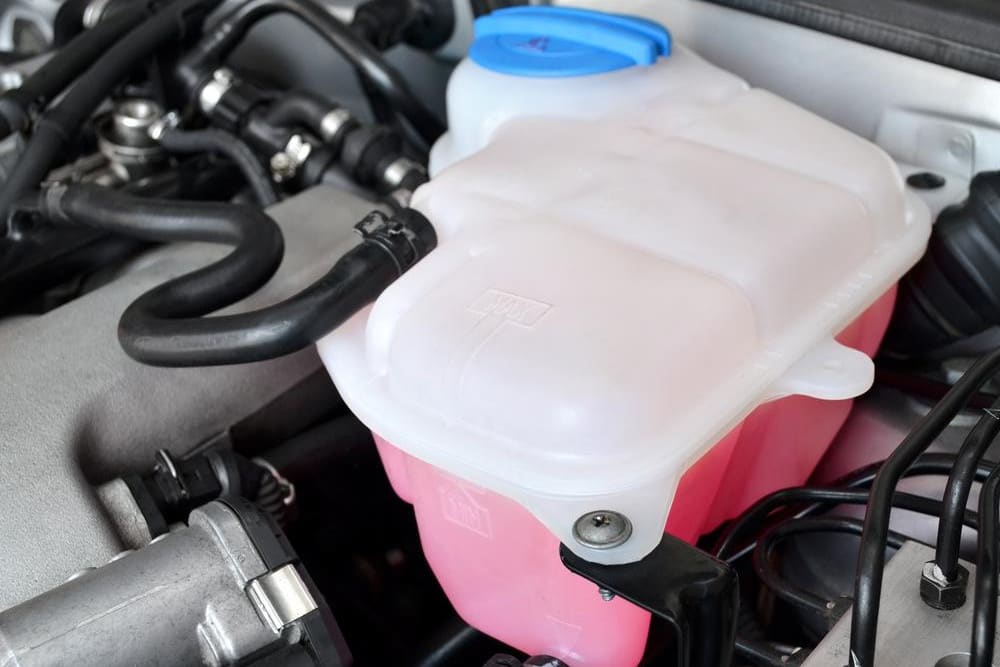

The coolant reservoir is the plastic reservoir mounted in the engine bay that stores the coolant for the engine. Coolant reservoirs are required because engines go through cycles of expelling and absorbing coolant as they warm up and cool down. When the engine is cold, the pressure of the cooling system is low and more coolant is required, and when the engine is warm the pressure of the cooling system is increased and therefore less coolant is required.
For some vehicles, the coolant reservoir is an integral part of the system, and since it is also pressurized, the coolant reservoir becomes an even more important component to engine safety. Because the coolant reservoir is part of the cooling system, when it has any issues it can quickly lead to issues with the engine. Usually a bad or failing coolant reservoir will produce a few symptoms that can alert the driver that a problem has occurred and should be serviced.
1. Constantly low on coolant
One of the first symptoms commonly associated with a bad or failing coolant reservoir is the need to constantly add coolant. If the reservoir cracks or develops any small leaks it can cause the coolant it is storing to leak or evaporate at a slow rate. The leaks may be small enough that they may not be obvious to the driver, however, over time they will cause the reservoir to empty out. The constant need to add coolant can also be caused by a leak somewhere else on the engine so a proper diagnosis is recommended.
2. Coolant leaks
Another symptom of a potential problem with the coolant reservoir is coolant leaks. If the coolant reservoir cracks or breaks due to old age or overheating it will leak. Small leaks may produce steam and drips, while larger leaks will produce streams and puddles, as well as an obvious coolant odor.
3. Engine overheating
Another more serious symptom of a bad or failing coolant reservoir is the engine overheating. If the coolant reservoir has any issue that prevents it from properly holding coolant, or from properly pressurizing the system it may cause the engine to overheat. Any issue that causes engine overheating should be addressed as soon as possible in order to prevent any possible damage to the engine.
The coolant reservoir is a simple but important component of the cooling system, and when it has issues it can quickly lead to overheating and even engine damage. For this reason, if you suspect that your coolant recovery reservoir may be having an issue, have the vehicle inspected by a professional technician, such as one from YourMechanic. They will be able to determine if the car needs a coolant reservoir replacement.



